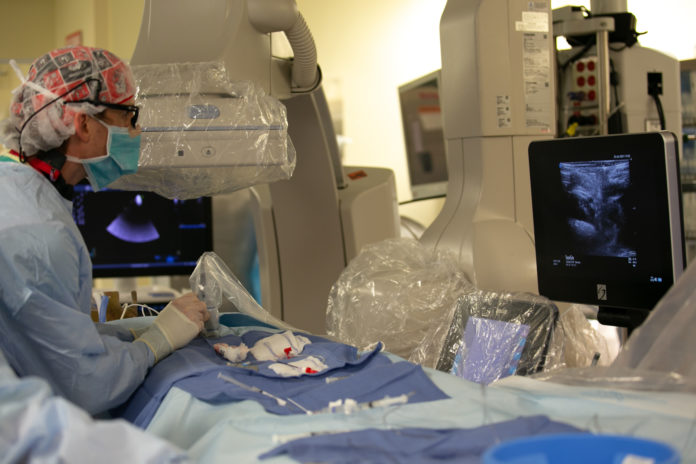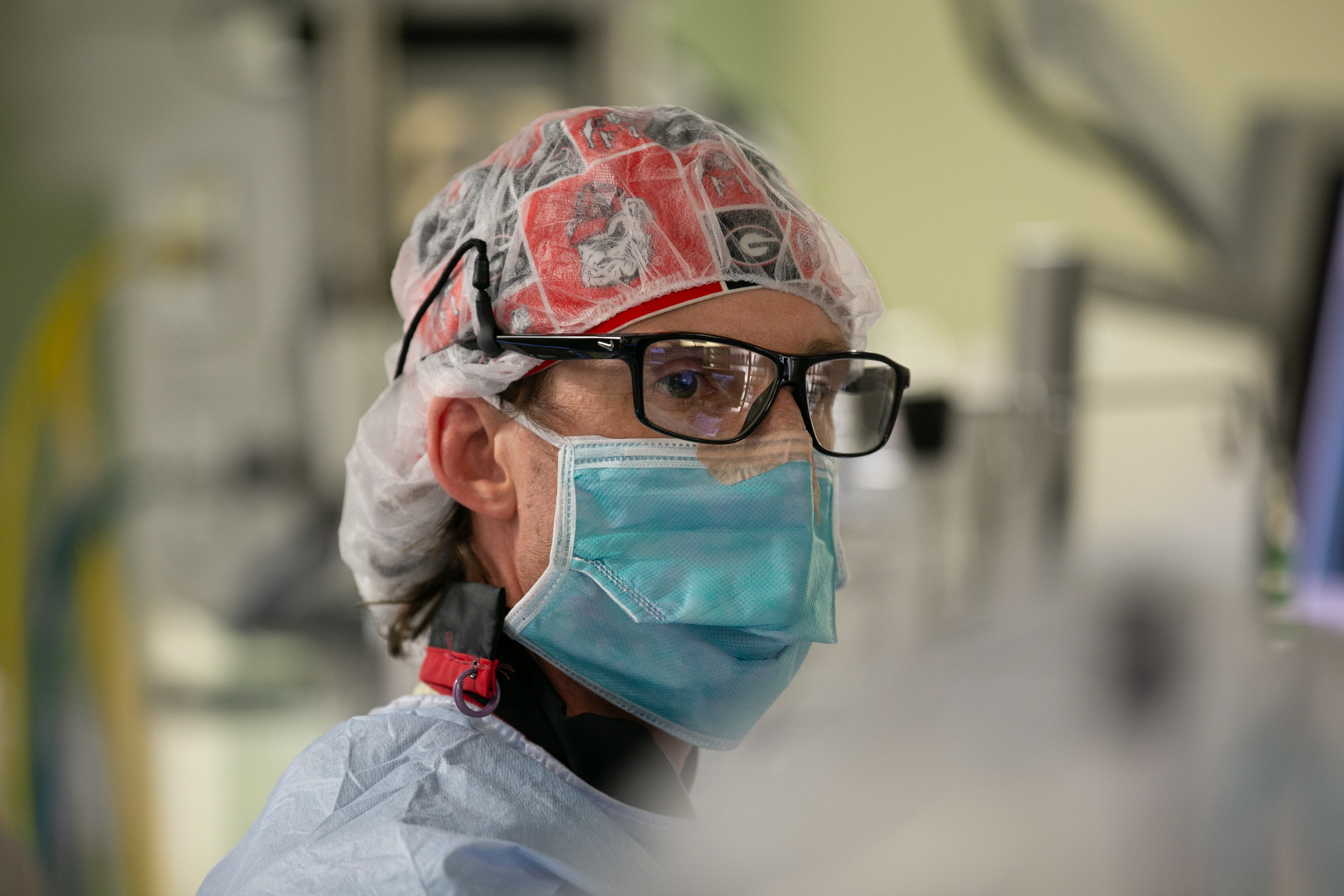
A Mercer University School of Medicine alumnus has repaired a problematic heart defect in one of the nation’s smallest infants.
Dr. Allen Ligon, a cardiologist at Children’s Healthcare of Atlanta, successfully closed a heart vessel opening known as patent ductus arteriosus (PDA), on the 1-pound, 1-ounce infant in April. At the time, the baby was the smallest in the nation to undergo the transcatheter procedure.
“It was pretty risky to consider doing this in such a small baby, and so I sat and had a very, very long conversation with the mother, outlining the risks and the benefits. And I truly believed that the benefits would outweigh the risks, or we wouldn’t have recommended it,” Dr. Ligon said. “But just to have that mother trust me and my team to be able to do something that had not been done before was really powerful.
“It was such an honor and something I take very seriously for parents to trust me with their baby that’s already so sick.”

A PDA is an open blood vessel connecting two arteries leading to the heart. All babies have this when they’re in the womb, but it typically closes within days after birth, Dr. Ligon said.
“It’s crucial while you’re living inside of mommy,” he said. “When you’re inside of mommy’s belly, you’re not using your lungs to breathe. Mom is breathing for you and providing you oxygen, and so your body has a natural way of diverting blood away from the lungs.
“But then of course when babies are born, they need to immediately breathe and exchange oxygen from the air, so that’s why the vessel closes.”
A PDA that remains open is common in premature babies; the infant Dr. Ligon worked on was born at 22 weeks. If the PDA doesn’t close, it can be harmful to the child’s lung and heart health.
Dr. Ligon and a team from Children’s Healthcare of Atlanta’s cardiac catheterization lab performed a procedure called a transcatheter PDA closure in which a closure device was routed through a vein in the baby’s groin to the precise location in the heart.
A combination of X-ray and ultrasound imaging was used to ensure the device was in the proper position in the heart, which, in this infant was maybe only one-half inch in size. A team from the Neonatal Intensive Care Unit also assisted.
“It takes a huge team to be able to land this device within the right spot inside the vessel to make it close,” Dr. Ligon said. “That vessel connects two very important structures that come off the heart, called the aorta and pulmonary artery, so the precision of where you land the device is just absolutely of paramount importance.”

The device used in the procedure was approved by the Food and Drug Administration just three years ago, so the ability to perform a transcatheter PDA closure in such a premature infant is relatively new. As the child grows, the device will become part of the body and will never need to be removed.
Babies from across Georgia can receive this treatment through Children’s Healthcare of Atlanta’s Transcatheter Closure of Patent Ductus Arteriosus in Infants Program, of which Dr. Ligon is co-director.
Dr. Ligon specializes in pediatric and adult congenital interventional cardiology. He often performs cardiac catheterization procedures using small plastic tubes called catheters to access the heart and treat patients born with heart defects.
He graduated from Mercer with a Doctor of Medicine in 2012. Dr. Blake Long, a professor on the Savannah campus at the time, introduced Dr. Ligon to pediatric cardiology and sent him to Charleston, South Carolina, to observe catheterization procedures.
“It was really fun and exciting because there are a lot of different possibilities (in pediatric cardiology),” Dr. Ligon said.
He said Dr. Long shaped his career trajectory, and many other mentors at Mercer — including Dr. Natalie Hogan, associate professor and chair of the Department of Pediatrics in Savannah — guided his future. In addition, the School of Medicine’s emphasis on primary care gave him a strong foundation to build on as a specialist.
“Mercer can not only provide a wonderful education for someone who’s going to be a general practitioner but also people who are going to be specialists,” he said. “They do a wonderful job of medical training, and I think that just speaks to the wonderful infrastructure that they have there.










